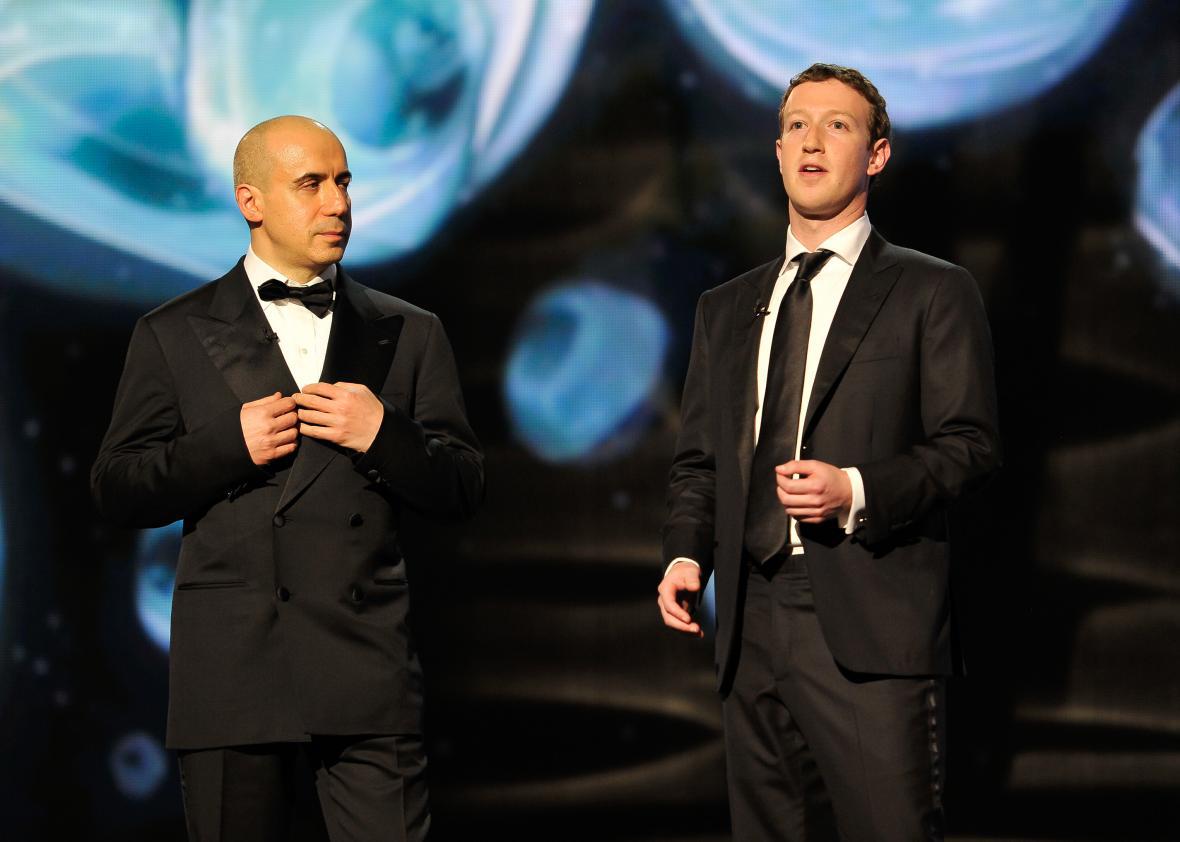Over the weekend, two foreign plutocrats with large financial stakes in Silicon Valley were caught in the media spotlight. On Saturday, the Saudi Arabian prince and esteemed tech investor Alwaleed bin Talal was arrested as part of an alleged corruption sweep. And then on Sunday, a trove of over 13.4 million leaked documents collectively known as the Paradise Papers were made public, some of which purport to show how Russian billionaire Yuri Milner bought massive shares in Facebook and Twitter with Kremlin-furnished funds.
These stories delivered a one-two punch to the American tech industry, raising questions about the potential role foreign billionaires could play in companies that are increasingly dominating every facet of our lives—and increasingly coming under governmental scrutiny for it. Yet their investments do not appear to be illegal, and there is no evidence the relationships led to any impropriety. So does it really matter?
The case of Yuri Milner, like many stories of suspected Russian meddling, is suspicious but not yet conclusive. Milner had a convoluted financial relationship with the Kremlin that necessitated labyrinthine infographics for news outlets to properly explain. To put it simply, he allegedly funneled hundreds of millions of dollars from state-controlled banks through a series of shell companies and into the social media giants Twitter and Facebook. Though he sold those holdings several years ago, Milner also reportedly struck up friendships with Mark Zuckerberg and other tech leaders.
These revelations from the Paradise Papers come shortly after congressional hearings last week on the role that Russian trolls with alleged Kremlin ties had in manipulating narratives on social media during the 2016 election. The optics aren’t great for the companies at a time when critics seek to further the narrative that the platforms are convenient tools for foreign actors looking to undermine American democracy.
Milner claims the investments were purely commercial and that the Kremlin’s political interests had no sway over his actions. The New York Times quotes a former Russia specialist in the Obama administration, who notes that state-linked institutions usually do have a political calculus while investing: “Oligarchs who receive significant amounts of financial support from Russian banks … have to pass above a political threshold, meaning such support requires the explicit or tacit approval of those at the top of Russia’s crony capitalist system.”
Saudi prince Alwaleed bin Talal’s role in the tech world doesn’t seem to have the same ominous undertones. His deep pockets are similarly adored in Silicon Valley; TechCrunch deemed Alwaleed “Tech’s favorite royal.” His investment firm was of the Twitter’s biggest shareholders as of last year with a $350 million share, and he’s held significant shares in Apple and eBay since the turn of the century. Last year, he also purchased almost $150 million in Lyft shares.
Alwaleed placed himself with Silicon Valley aristocrats and influencers. He signed a pledge campaign, co-founded by Bill Gates, for billionaires to eventually donate a “majority of their wealth.” His meeting with the founders of Snapchat, and his subsequent decision against providing funds, created hype around the platform in 2015.
And his arrest has little to do with his tech holdings. He was rounded up with dozens of other government officials in an apparent move to consolidate Crown Prince Mohammed bin Salman’s power under the pretense of an anti-corruption campaign. Nevertheless, his fall still sent shockwaves through the tech industry. The BBC suggests that investors are getting cold feet and will likely avoid doing business with companies associated with Alwaleed because of the uncertainty around his legal troubles. Twitter’s shares were down 2.26 percent as markets opened following his arrest.
There aren’t any easy takeaways from examining the recent controversies swirling around these two men. Their stories don’t have much to do with each other and wouldn’t be linked beyond the happenstance of timing. Plus, Milner and Alwaleed are not the only foreign billionaires with their money in Silicon Valley: People like Carlos Slim and Jack Ma also wield financial influence over the industry. But since Milner and Alwaleed became embroiled in scandal this weekend—after the congressional hearings and amidst an unprecedented look at the role of tech companies on American life—they may further raise the visibility of relationships between foreign entities and giant tech companies. It’s not that there’s anything inherently suspicious about foreign billionaires investing in major American companies. It’s just that the news stories about these billionaires may draw more unwanted attention to Silicon Valley as it becomes increasingly vulnerable to the whims of geopolitics.
